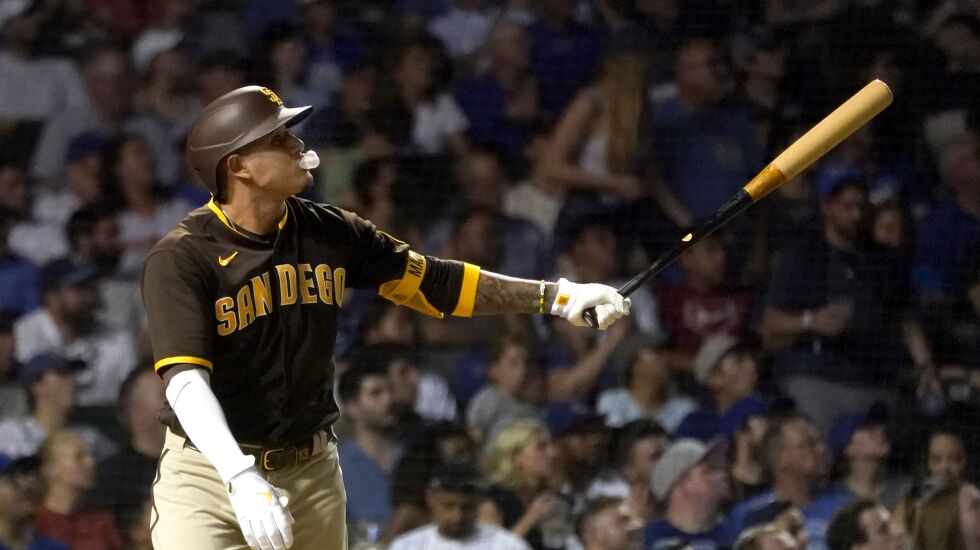
Tick, tock, Manny Machado. Better watch that pitch clock.
Baseball’s new timing device made its big league debut on Friday during a limited schedule of spring training openers and wouldn’t you know it, it was Machado, the San Diego Padres’ All-Star slugger, not a pitcher, who was called for the first violation.
Machado found out the hard way that the pitch clock works both ways. He wasn’t fully in the batter’s box and alert to the Seattle Mariners lefty Robbie Ray as the 15-second clock wound under 8 seconds in the bottom of the first inning. Umpire Ryan Blakney called time and signaled strike one against Machado, who finished second in last season’s NL MVP race.
While Machado was bemused, he wasn’t fazed, as he got the first of two singles.
“I might have to make a big adjustment. I might be 0-1 a lot this year, man,” Machado said. “It’s super fast. It’s definitely an adjustment period. Going down in the history books.”
It may be Spring Training, but Manny Machado is the first player in MLB history to start 0-1 in an at bat
— Barstool Baseball (@Starting9) February 24, 2023
Because he took too long to get into the box. pic.twitter.com/cOfDpBKOzU
The pitch clock is among several new rules designed to improve pace. Players will have 30 seconds to resume play between batters. Between pitches, pitchers have 15 seconds with nobody on and 20 seconds if there is a baserunner. The pitcher must start his delivery before the clock expires. After a pitch, the clock starts again when the pitcher has the ball back, the catcher and batter are in the circle around home plate, and play is otherwise ready to resume.
Batters must be in the box and alert to the pitcher with at least eight seconds on the clock. Batters can call time once per plate appearance, stopping the countdown.
When a pitcher doesn’t throw a pitch in time, the penalty is an automatic ball. When a batter isn’t ready in time, it’s an automatic strike.
“It’ll be a little tricky,” Padres starter Nick Martinez said. “Got to find some areas that I can save some time so I can get some time when I need it.”
Martinez said the clock will affect how pitches are called.
“Today the way to alleviate the pressure was having the PitchCom with me,” he said. “For the majority of the time (Luis Campusano) was calling the game but if I had a pitch that kind of stood out for me I just pressed it. I didn’t wait for him to call it, I was like ‘I want this one.’ I did it a few times. There are times when I like to slow the game down, so that’ll be interesting.
“I thought I was not even going to think about it today and I was definitely conscious about it,” said Martinez, who is moving into the rotation after having a hybrid role last year. “I was a little caught by surprise. Definitely going to be an adjustment period.”







